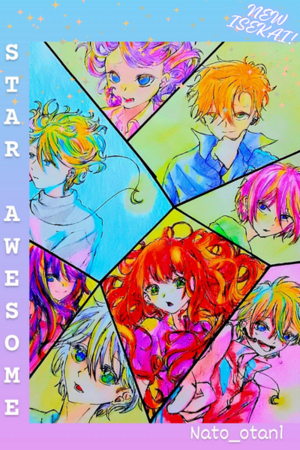Chapter 31:
Chapter 31 – Family
Love Lesson After School
The silence in the Takamine household was thunderous.
Haru hadn’t stepped foot here since the scandal broke, and Aya had never crossed its threshold. But now, both stood side-by-side at the genkan, shoes neatly placed, hearts pounding like war drums.
Her father’s voice boomed from the living room.
> “So you’ve finally come home. And you brought her.”
Aya remained composed. “Thank you for letting me visit.”
Mr. Takamine scoffed. “I didn’t. Haruka did.”
Haru swallowed, stepping in front of Aya. “Please, let’s talk. Just for a moment.”
The living room was cold despite the summer sun. Haru’s mother sat quietly on the couch, hands folded, eyes red. Her father stood tall, arms crossed, dressed in a stiff business suit as if ready to go to war.
> “You’ve embarrassed us,” he said sharply. “The neighbors talk. The school board talks. Do you know what people call you now?”
Haru’s knuckles turned white. “I know what I am. I also know who I love.”
Mr. Takamine’s face twisted. “Why do you have to love a girl , Haruka.”
Aya gently raised her voice. “Sir, I understand how this looks. And I won’t defend the choices that brought us here. But I never once manipulated or coerced her.”
He ignored her. “Do you have any idea what we went through raising you? Do you know how many nights your mother cried when you stopped coming home?”
Aya bowed deeply, the back of her neck exposed in complete humility.
> “I’ll take care of her. Even if the world says I shouldn’t.”
> “You think this is about what the world says?” he spat. “This is about honor, about family. Haruka, do you want to throw everything away for this… woman?”
Silence.
Then Haru stepped forward, her voice shaking.
> “You’re wrong,” she said. “You’re so, so wrong. She’s not the one who ruined our family. You did that. When you stopped listening. When you only cared what people thought.”
She turned to her mother, who looked away, unable to meet her daughter’s eyes.
> “You should,” Haru whispered to Aya. “You should take care of me. You’re the only one who ever did.”
Her father’s fists clenched, the vein on his temple pulsing. “Then get out of this house. Don’t come back.”
Her mother let out a stifled sob but didn’t stop him.
Haru didn’t wait for more. She took Aya’s hand and walked away without looking back.
---
That night, the rain came.
Their tiny apartment was quiet save for the soft patter of drops against the glass. Haru sat by the window, hugging her knees.
Aya placed a warm cup of tea on the floor beside her.
“Chamomile,” she said gently. “You haven’t eaten.”
Haru’s voice was a whisper. “I’m not hungry.”
Aya didn’t press. She sat beside her, the space between them soft but fragile.
> “I didn’t think it would hurt this much,” Haru murmured. “I knew he’d be angry. But I thought... maybe... Mom would say something.”
Aya touched her shoulder lightly. “People react to change with fear. Especially when it doesn’t fit their picture-perfect world.”
Haru rested her head against Aya’s shoulder. “So what do we do now?”
Aya exhaled slowly. “We survive. Quietly, maybe. But we survive.”
---
Over the next few weeks, things only grew worse.
Online forums flared with hate. Former students whispered behind Haru’s back. Even strangers sometimes looked twice on the street, their stares lingering with judgment.
Their relationship was out there now—raw, exposed. And though they had broken no law, society was less kind than the law ever could be.
Aya’s resignation had made headlines in a few tabloids. Some even called her a predator. Others painted her as a tragic figure, a martyr for “forbidden love.”
Haru was barred from graduation speeches. Her acceptance to a local university was reviewed. Even her friends grew distant.
She smiled through it all—mostly for Aya.
But one night, over takeout on the floor, she finally said it:
> “We can’t get married, can we?”
Aya paused, chopsticks mid-air. “No. Not now.”
> “Because people would riot. Because no venue would allow it. Because even our families wouldn’t come.”
Aya nodded, her expression unreadable.
Haru set her food down. “But we can still live together, right?”
Aya’s eyes softened. “Yes. We can live.”
Haru leaned into her, wrapping her arms around Aya’s waist.
> “Then let’s just live. That’s enough. That’s everything.”
Aya kissed the top of her head.
> “It is.”
---
Months passed.
Aya opened a small café in a quiet alleyway called Kuro Neko Coffee. Black cat logos adorned everything. Haru designed the menus herself. Locals came for the atmosphere. Few knew the full story behind the owner’s sad eyes and the student who often helped after classes.
Over time, the world forgot.
They didn’t.
But they found peace in their little world.
One rainy afternoon, a woman left a baby at the café with a letter. No name. No return address. Just:
> "I heard you take care of people. Please take care of her too."
They named her Yui. And together, they raised her with gentle patience and unwavering love.
---
Years later, Haru stood by the counter, wiping glasses. Yui, now five, sat on Aya’s lap, reading a picture book.
> “Mama,” she said, “what’s ‘family’?”
Aya looked at Haru, who smiled.
Aya replied:
> “It’s something you choose. Someone who stays when everyone else leaves.”
Haru knelt beside them and kissed Yui’s cheek.
> “Exactly. You’re our family. The one we always wanted.”
Yui giggled, nestling between them.
And for the first time in a long, long time, Aya and Haru didn’t feel shame.
They felt whole.




Please sign in to leave a comment.